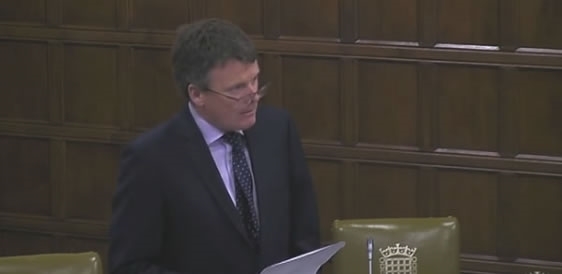
By Andrew Gilruth, GWCT Communications Director
Predator control will now be included in all existing and future curlew conservation schemes following a recent Westminster debate.
After hearing that the estimated 300 breeding pairs south of Birmingham might disappear in just eight years, Richard Benyon MP said that “our national approach to conserving species does not work well enough.”
This isn’t just a problem facing the south of England. Breeding curlew have declined by 46% across the UK in just 25 years. The picture would be more widespread if curlew were not thriving on driven grouse moors.
In his passionate speech, he explained why he called for the debate and what needed to happen next. “We should stop funding curlew conservation projects that do not include effective predator control options. We have to do what works, not what is popular.”
He explained that, over the years, politicians and large conservation organisations have become locked in a “doomed pact” to achieve change through legislation and regulation. It has not worked well enough.
“To maintain their popularity, big membership organisations avoid acknowledging that the approach they have been advocating does not work, and they do not like the approaches that do work.”
Farmland conservation schemes have largely stabilised adult curlew numbers by halting further habitat loss. The problem now is chick survival. “After 20 years of studying curlew, we know enough to take action.”
In Ireland they have recently announced plans to undertake predator control alongside habitat management.
Dr Therese Coffey’s minister’s response included: “I am assured by my scientific advisers that the research shows that, although predation is the main reason for egg and chick loss in many bird species, most can withstand high levels of predation.”
This is clearly not the case for our curlew south of Birmingham.
Richard Benyon challenged her to go back to her officials because “when there is a very small number of a declining species, there is no margin for error.”
Therese Coffey explained that she had rewritten the conclusion of her speech during the debate, which included: “He has passionately set out why we need effective action, and I agree. That is why I will be asking Natural England and policy officials from the Department for Environment, Food and Rural Affairs to include the use of predator control in all current and future projects that we fund. It is important to me that it is at least considered, and that reasons are given for why it is or, equally importantly – why it is not included in a particular scheme.”
Will you help us stop curlew retreating?
 We don’t want the curlew to go the way of many of our much-loved birds, like the corncrake and the nightjar. They shouldn’t be consigned to a few remote places. That is why we are asking you to support this urgent appeal for funds.
We don’t want the curlew to go the way of many of our much-loved birds, like the corncrake and the nightjar. They shouldn’t be consigned to a few remote places. That is why we are asking you to support this urgent appeal for funds.
How you can help
£25 could help us to get our practical guidelines in the hands of those on the ground who can bring about curlew recovery
£100 could help us to highlight how current conservation policy is failing to give curlew the best chance of recovery by briefing journalists and politicians
£250 helps us to get advisors out to curlew sites and assess what can be done to aid their recovery on the ground this year
Donate to our Curlew Appeal >